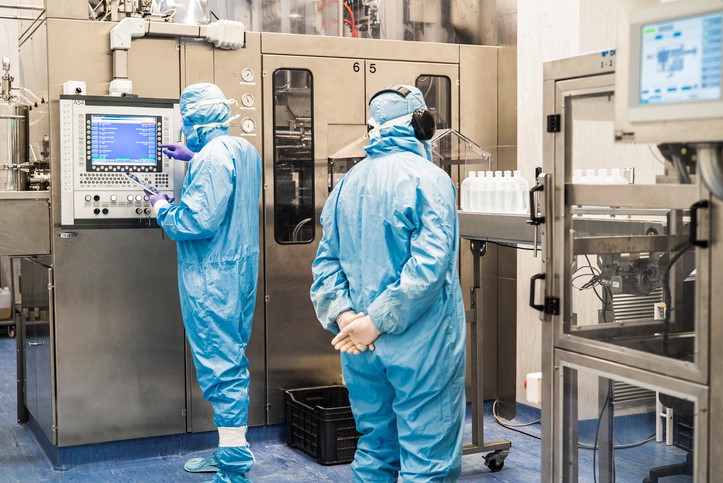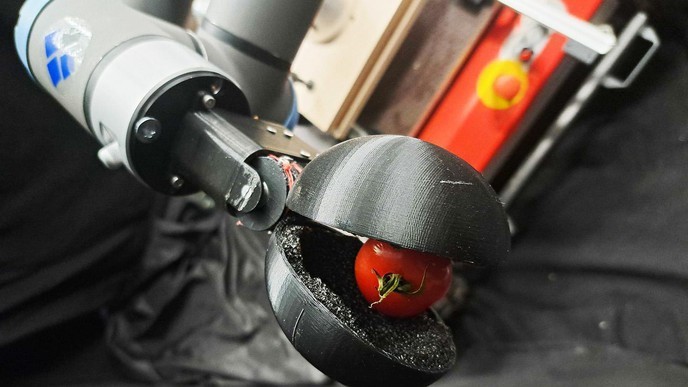The Personalised Medicine Industry Must Think About the Environmental Impact
Gabrielle Samuel, a senior research fellow at the Welcome Centre for Human Genetics at Oxford University, emphasizes the importance of considering the environmental impact of personalized medicine. She suggests that advanced technologies can be valuable in reducing the environmental footprint of these medicines, but only if incorporated into a comprehensive strategic plan that addresses all stages of production, storage, and distribution. Samuel highlights that the environmental implications of creating patient-specific medications should not be overlooked.

Figure .1 The Personalised Medicine Industry Must Think About the Environmental Impact
Figure 1 shows Gabrielle Samuel, a senior research fellow at the Welcome Centre for Human Genetics at Oxford University, emphasizes the need to address the environmental impacts of personalized medicine manufacturing. She highlights that while personalized medicine may seem more environmentally friendly due to its targeted nature, it is crucial to mitigate its environmental effects. Samuel suggests that mitigation efforts should go beyond carbon emissions and also consider factors such as water usage, sourcing of manufacturing equipment, fair labour practices, and proper disposal methods. Taking a comprehensive approach to minimize the environmental impact of personalized medicine is essential.
Gabrielle Samuel and her co-authors provide recommendations for personalized medicine firms to minimize their environmental impact. The paper advises that in addition to utilizing renewable energy sources, these companies should reduce their reliance on temperature-controlled facilities. Furthermore, developing plans for repurposing or recycling old equipment is recommended. These measures aim to promote sustainability and reduce the environmental footprint of personalized medicine manufacturing.
Important goals
Gabrielle Samuel emphasizes the importance of considering technologies that enhance production efficiency to minimize the environmental impact of personalized medicine. She highlights areas such as reduced energy and water consumption as key goals. Samuel believes that automation and artificial intelligence (AI) will play a vital role in achieving this objective. Drawing inspiration from other fields, she points out that AI has been successfully utilized by companies like Google to reduce data centre cooling by 40%. Additionally, AI is being leveraged in precision farming to optimize water usage. These examples demonstrate the potential of AI in mitigating environmental impacts in various industries and suggest its applicability to personalized medicine production.
Gabrielle Samuel raises a cautionary note regarding the application of advanced technologies to reduce environmental impact in the industry. While recognizing the potential of technologies like AI in improving efficiency, she emphasizes that they should not be viewed as standalone solutions. Samuel stresses that technology alone cannot solve environmental problems but can only serve as a tool in the broader context of sustainable practices. She highlights the concern that unchecked efficiency gains can lead to process intensification, where the saved resources are quickly utilized by more power-hungry algorithms or processes, resulting in increased consumption rather than decreased environmental impact. It is crucial to implement appropriate constraints and regulations to ensure that efficiency gains are balanced with sustainable practices and overall environmental goals.
Gabrielle Samuel highlights the environmental impact of digital technologies and emphasizes the need for personalized medicine makers to consider all aspects of their products, including the technologies, facilities, and distribution networks involved. She points out that the digital sector is responsible for a significant share of global emissions and generates substantial technology waste. To minimize environmental impact, Samuel recommends creating databases that include life cycle assessments for various technologies used in personalized medicine manufacturing. This is important due to the complexity of the manufacturing process, which involves multiple steps and variables that should be taken into account, such as determining whether a technology is single-use or multi-use.
"A group must take into account each of these steps and the factors they are related with when calculating the environmental effects of this procedure. Inventories have data to aid in this, but there are still significant data gaps for manufacturing personalised medicines, making it more difficult for researchers to estimate the process' total impact. The more data we can get, the better.[1]
References:
- https://www.genengnews.com/insights/personalized-medicine-sector-needs-to-consider-environmental-impact/
Cite this article:
Janani R (2023),The Personalised Medicine Industry Must Think About the Environmental Impact, AnaTechMaz, pp.288















